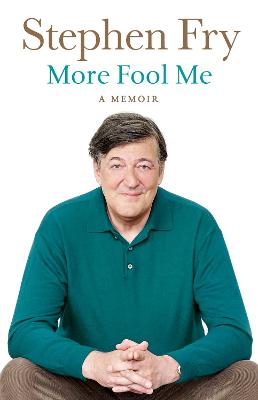Reviewed by brokentune on
Memoir, the act of literary remembering, for me seems to take the form of a kind of dialogue with my former self. What are you doing? Why are you behaving like that? Who do you think you are fooling? Stop it! Don’t do that! Look out! Books, too, can take the form of a dialogue. I flatter myself, vainly perhaps, that I have been having a dialogue with you. You might think this madness. I am delivering a monologue and you are either paying attention or wearily zipping through the paragraphs until you reach the end.
Never a truer word.
As much as I like, even adore, Stephen Fry, I cannot say that I enjoyed this third instalment of his autobiography.
The first part of the book basically retold the parts of Fry's life that were detailed in Moab is My Washpot and The Fry Chronicles. Catching up with these parts would have been ok if the rest of this book had made for it with an account of the next part of his memoir that was written in the same engaging style as Moab or the Chronicles.
Unfortunately, this doesn't happen. What follows the re-cap of his earlier life is an excerpt of Fry's diary recorded in 1993.
But that is just it. There is little commentary from Fry on the diary entries which as a result read like a mere listing of dates, events, (famous) names, and an account of just how much coke he scored.
In fact apart from the way that these uncommented entries make Fry look and sound like a bit of a tosser, there was a major part of his life that is hinted at but that actually is never brought up: What made him re-consider his coke habit?
All the way through the book, he goes on about how "naughty" or "debauched" his behaviour and especially his cocaine habit were, but there seemed to be something missing - most of the book goes on to show how his habit fuelled his enormous output of work during this period, without any apparent consequences.
How do you get from this to a short couple of paragraphs warning people not to copy his indulgences because they will surely die???
I'm under no impression that the Stephen Fry of 1993, whose diary I found grating and who seemed quite arrogant, patronising, and sometimes even rude in his address or description of people he thought less skilled or less intellectual than himself, may have (and probably has!) developed into the person who wrote the compassionate, introspective, and discursive volumes that are Moab and The Fry Chronicles. That aspect of Fry, his discussion of issues, is what is missing from More Fool Me.
Reading updates
- Started reading
- 15 April, 2017: Finished reading
- 15 April, 2017: Reviewed
